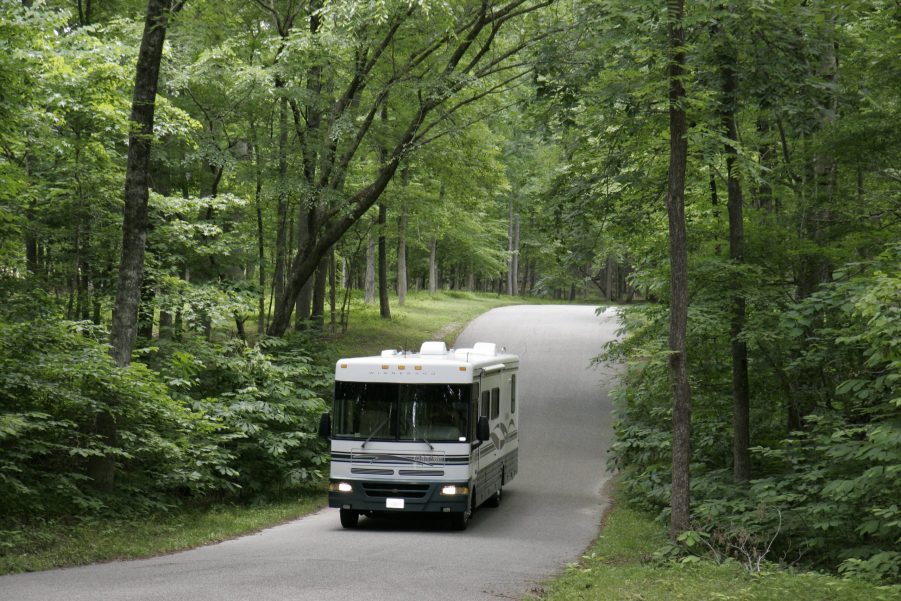
A Few Common RV Mistakes Can Lead To Deadly Rollovers
Recreational vehicle and camper dealership nationwide are seeing increases in camper sales this year. With the pandemic restrictions, people and families soon realize that hitting the road for an adventure with the RV is the best and safest way to travel. After all, campsites offer the perfect outdoor get-togethers that allow for social distancing. You’re not sharing facilities with anyone and can reduce your risks of encountering contaminated surfaces.
But this increased popularity of RV adventuring means there are a lot of rookies out there driving or hauling campers and making RV mistakes. Rollovers are the worst and most dangerous types of accidents for anyone pulling extra weight. And there are a few common mistakes that beginner RV-ers should avoid, to prevent such rollover incidents.
RV size matters and avoiding improper tire pressures
Anyone with any experience hauling or towing will tell you the most important safety check you can do before hitting the road is checking the air in all the tires. One of the most significant causes of rollovers is the RV’s size and weight distribution, according to Consumer Reports.
Each motor home or camper will have an ideal tire pressure reading for you to follow. Under or overinflating the tires means your RV’s weight will be disproportionately distributed across all ground points. If you’re driving at highway speeds, with more weight in one area, you’re prone to increased risks of potential tire blowouts, causing rollovers.
It’s recommended that you test your tire pressures in the morning or when sunlight isn’t directly affecting the temperature of your tires. It’s also best to check pressures after your RV or camper has rested for at least two hours. Fifth Wheel St says that individual tires should always read within the minimum and maximum pressure levels, indicated by the manufacturer.
Any cool temperature readings beyond those suggested levels can be a sign of a failing tire, and add stress to the axles, making the load unstable.
Be mindful not to oversteer your RV
Pulling a camper or RV, whether you’re pulling with a hitch or via a fifth-wheel, means you have substantial weight behind you. Stopping, accelerating, and turning will all be affected by the trailer.
A common RV mistake drivers make is reacting to road conditions the same way they would from behind the wheel of a small car. But over-correcting or over-steering can almost immediately cause the load weight to shift and the camper to rollover.
Normal debris in the road might not be a concern for the family sedan. But when you’re hauling or driving your RV, you need to be extra vigilant. Potholes and road debris can cause severe tire damage and blowouts.
Weather conditions also present risks as your visibility can become limited. To avoid rollover risks, take driving your camper seriously and remain alert and patient. You can’t drive as fast as you might be used to, but giving yourself time to react and avoid issues safely, can be life-saving.
Rookie RV drivers should practice and get comfortable
The key to avoiding RV mistakes that lead to deadly rollovers is first knowing your RV inside and out. Before you take the big trip, spend time driving or hauling locally. Get used to how acceleration and braking feel from behind the wheel. Listen to how everything sounds and study the handling.
The more familiar and in-tune you are with your new RV before you hit the road, the quicker you’ll be able to identify a problem. Being alert to burning rubber smells, unusual noises, or an imbalanced load can help you prevent incidents before they turn into rollovers.
In today’s pandemic conditions, more and more Americans are taking up RV-ing as a way to travel and venture outdoors safely. For those who may be new to hauling and towing, be mindful of these tips.
Nothing ruins a vacation quicker than an accident. But RV collisions can be even more dangerous with higher risks of deadly rollovers. Take your time and be knowledgeable about the new-to-you camper before you make the big trip to make sure you enjoy your RV adventure safely.


